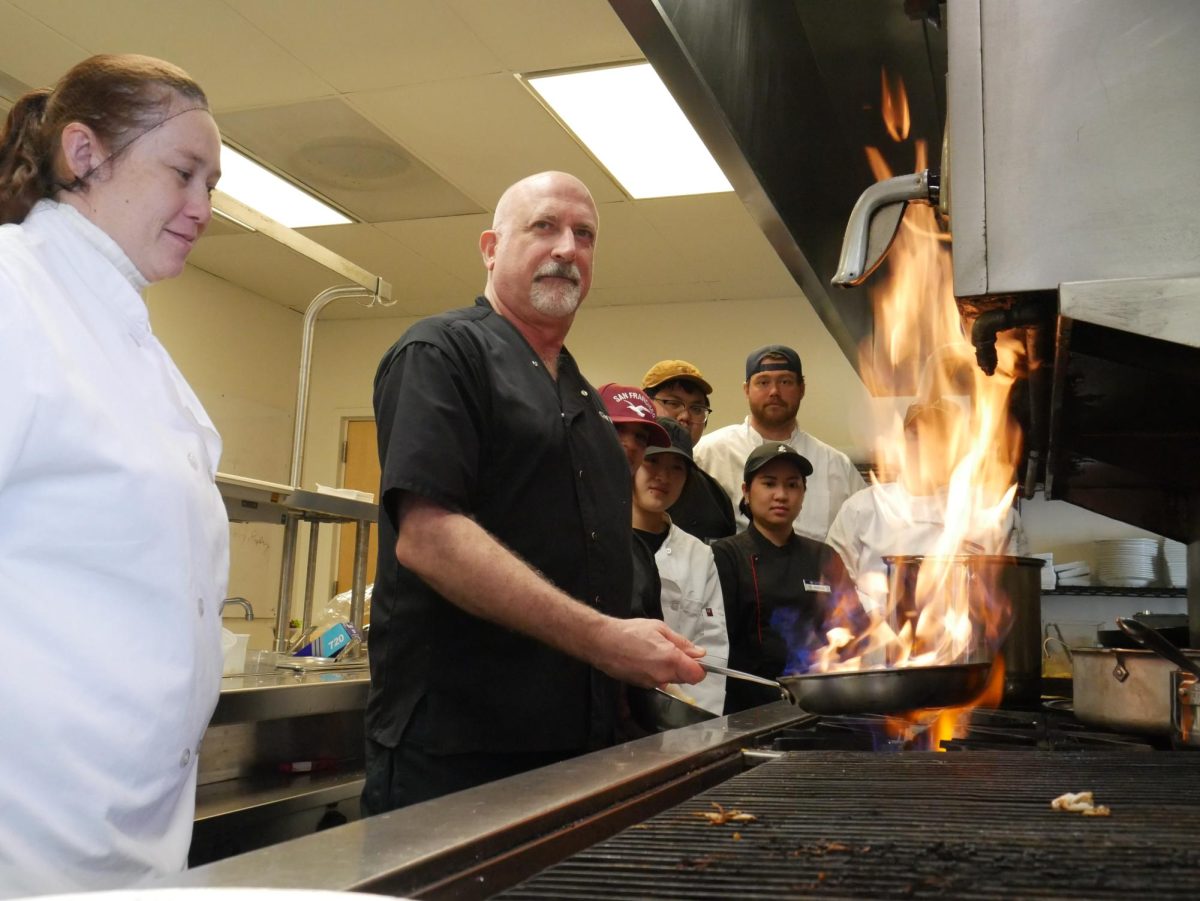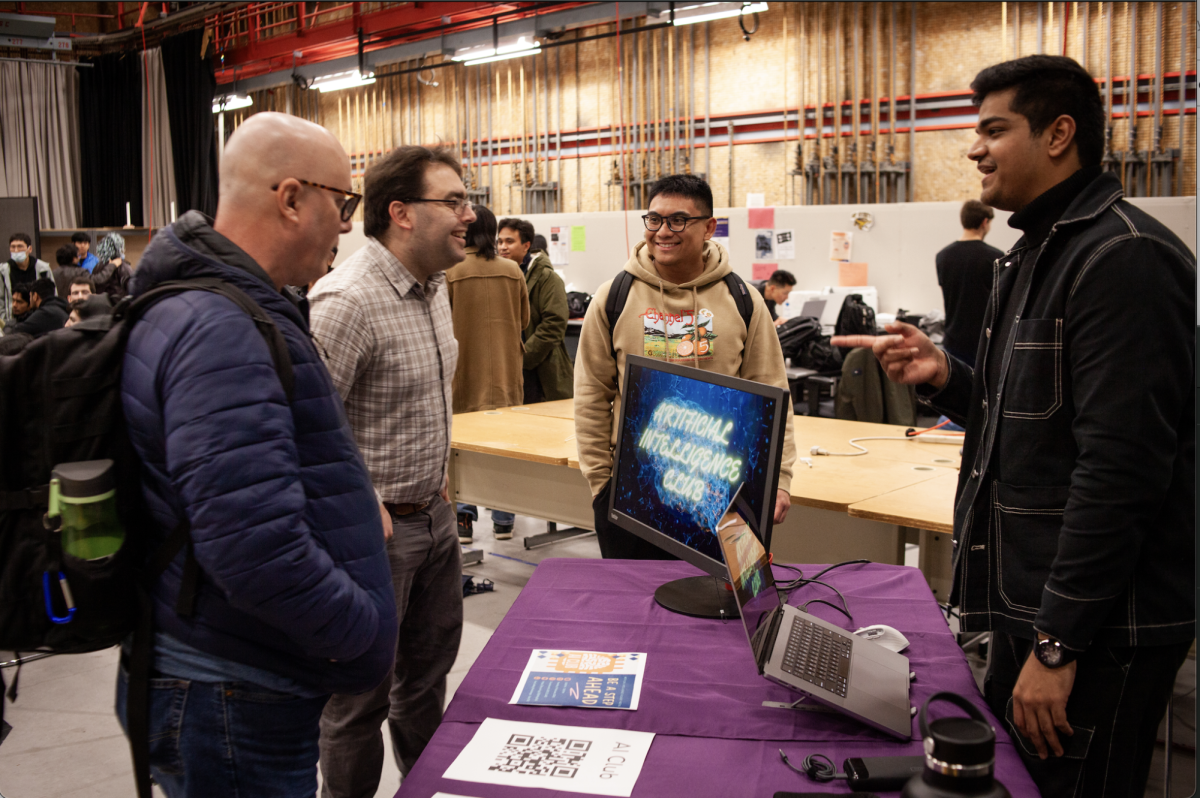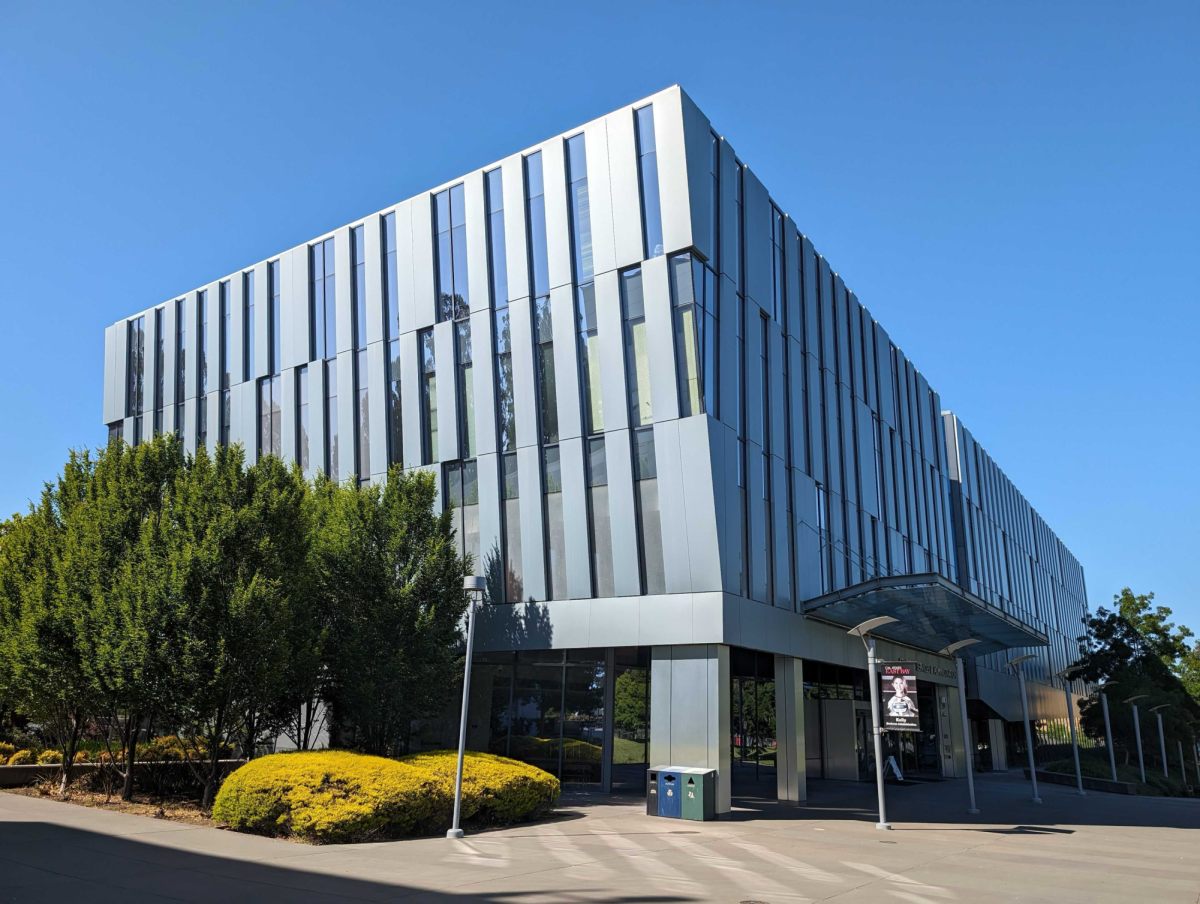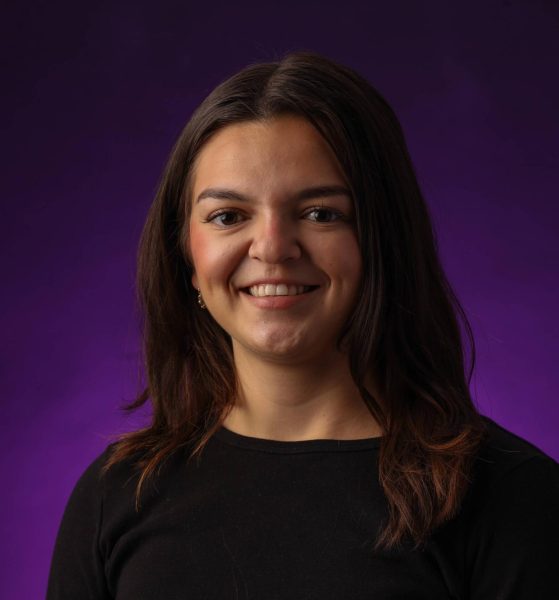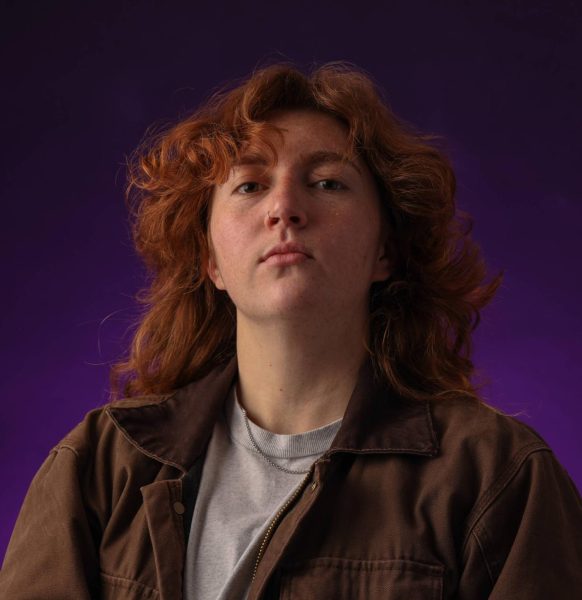On the fourth floor of Burk Hall, students work on plating dishes in the kitchen of the Vista Room while waiting for Chef Tim Shaw to call out when to serve the orders. The conversations of the guests in the dining room echo into the kitchen along with the clatter of the utensils against the plates, while the students move with precision, maintaining their focus on perfecting the presentations.
This year marks a decade since Shaw began working as a chef instructor at San Francisco State University. Before coming to SFSU, he worked as a chef instructor at the International Culinary Center (formerly the French Culinary Institute) in Campbell, California, and previously at its New York City location. He also has experience in catering and private chef services.
Regardless of his extensive culinary career, Shaw’s journey to becoming a chef began in an unexpected place. After graduating in 1989 from Williams College with a degree in archeology and classics, Shaw went on a dig in Greece, where he fell in love with food for the first time.
“I discovered really good, really fresh, crazy tasty food in Greece, and I went to culinary school after that,” Shaw said. “I loved exploring new foods and learning about wine and tasting things I didn’t grow up with, so it was very fun and exciting.”
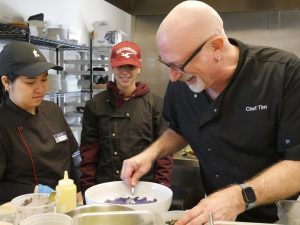
Shaw graduated from The French Culinary Institute in 1995 with a Grande Diplome in Classical French Cuisine.
When he was 29 years old, he was diagnosed with stage four lymphoma cancer, which led him to continue his education, but on the science side of food.
“I drink green tea, and I eat kale, and I do all the stuff you’re supposed to. How the hell did this happen?” Shaw recalled.
His diagnosis is what made him interested in learning the intersection between the food we eat, what society is doing to the environment and what happens in our bodies and our communities.
Shaw graduated from New York University in 2001 with a master’s in food studies. After he taught a food science class there, he fell in love with teaching because he loved talking about food and sharing his knowledge with students.
His scholarship did not stop there, as he went on to earn a Master’s of Public Administration in Sustainable Management at the Presidio Graduate School in 2015, where he focused on food policy.
During his time there, he recalls Donna LaSala as the best teacher he has ever had because she got people to empathize with multiple viewpoints and pushed students past their comfort zones.
“When students have questions, or they want to talk about something, I find myself thinking, ‘What would Donna do?’ How would she approach answering this question?” Shaw said. “I don’t want students to leave a class that I’m teaching just being able to spit back what I’ve told them. I want them to understand that they have the right to question things and the power to question things.”
LaSala reflected on her time having Shaw as a student.
“In addition to his fantastic sense of humor, Tim’s curiosity was a clear motivator throughout his time in my courses,” LaSala said in an email. “He has always been genuinely interested in figuring out how to solve problems … not just argue about them but solve them by bringing together a wide range of stakeholders. I think part of his magic is that he really is excited to learn new things all the time, so his material is never old. He is always finding new ways to look at the same things, and new things to get curious about!”
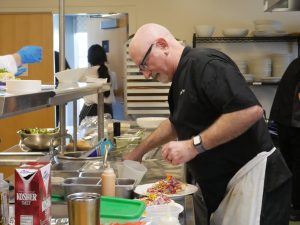
Sybil Yang, an associate professor in the department of hospitality and tourism management, was part of the hiring committee in 2015 that hired Shaw.
“We provide education to an entire wide gamut of people, some who barely cook for themselves, who have grown up on processed food, and that’s a very different audience than a culinary student,” Yang said. “He’s really taken that to heart and really taken on the mission of everybody deserves to know how to take care of themselves in terms of good food and how to prepare it and do that in a wholesome and budget-friendly way.”
Joseph LaVilla was also hired in 2015 to work in the Vista Room to run the front of the house while Shaw ran the kitchen.
“Tim and I didn’t know each other before we started working together, and within a couple days, it was like we had worked together for years,” LaVilla said. “One of the best things he is able to do is really talk somebody off the ledge of being terrified of what they’re about to do because they have zero kind of reference to it, and just be able to ease them into it slowly, give them simple things to do.”
Shaw’s favorite dish is handmade pasta, as he finds the process fun, communal and zen.
“If I’m having friends over for dinner, I’m likely to do some type of pasta because I kick everybody out of the kitchen, I pour myself a glass of wine, I put on my music and it’s meditative to me,” Shaw said.
Looking ahead, the chef, who is 57, is considering writing a plant-based cookbook and going to wineries to do pop-up dinners after he retires.
“I try to tell students, you’ve got to build up your skills, but a lot of it is you’ve got to love what you do. You don’t have to love it every single day, but if you really aren’t happy doing it, do something else,” Shaw said. “And that doesn’t just apply to cooking, that applies to everything.”





